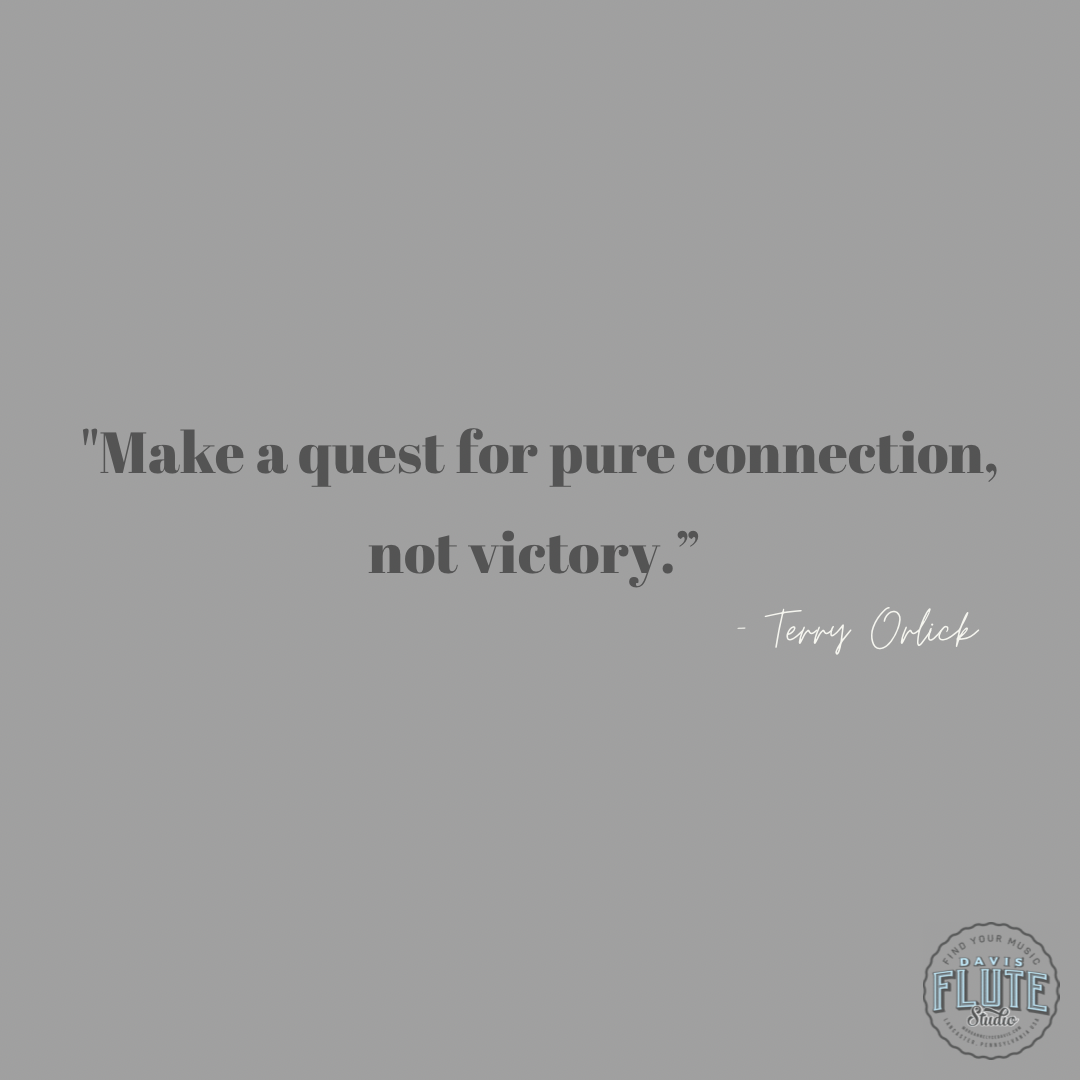How Can We Allow For Imperfections?
We are all aware that nothing is perfect. Logically, we know this is true and yet we continue to strive for perfection anyway. The dissonance this creates can be pervasive for musicians - we desperately want perfect response, performances, stage presence and technique even as we are fully aware that absolute perfection is impossible.
This disconnect between what we want and what we know is possible can leave us with a distinct dissatisfaction; a nagging feeling that we are not capable of what we hope to achieve.
So if we’re not really striving for perfection, what are we working toward?
In Terry Orlick’s book “The Pursuit of Excellence” he emphasizes connected focus. In a solitary sport or pursuit, this means being fully connected to the task at hand. But there are a variety of layers to this - in chamber music, it could be connecting to your fellow musicians; in teaching it might mean to focus on fully connecting with your students through what you are teaching. It could even mean focused listening when you are the audience and not the performer.
Having this connected focus in mind has proven incredibly helpful for me in tying together elements of mindfulness and yoga with my musical practice and performance, and particularly helpful in learning to work with and through performance anxiety.
Last weekend, I hosted a big event for around fifty flutists. Beyond organizing and coordinating, I had three performances spanning across the entire day - one in the morning, one in the afternoon, and a concerto performance in the evening. My biggest anxieties about the day were tied to my ability to maintain my focus with so many important things happening at once, and how my attention might hijack those performances.
Leading up to the day I made sure to stick to my regular meditation practice because I knew it would help me to manage racing and distracting thoughts (among other benefits), but I also made an added priority of connected focus. I imagined the ways I would connect with attendees, focus on the message of the music or the other musicians I was performing with, and how I would stay present to the overall message of the music and the day. When the big day finally arrived, I did my best to do all of those things in the moment.
Were my performances perfect? Absolutely not. Neither was the day. But they were both meaningful, connective, and engaged. I rolled with the punches in both performance and coordinating as best I could and focused on the desired outcome that a connected focus would bring.
Overall, I had an easier time accessing my focus and accepting the things that did not go as well as I might have hoped.
Of course I’m still a human (and a musician), and after the fact I found myself ruminating on some of those imperfections even though I was managing my emotions better than I might have in the past.
In the days following the event I was reading “Think Again” by Adam Grant, and in one of the chapters he talks about embracing imperfections - even going as far as to acknowledge or advertise them. (The book gives the example of applying for a job and not camouflaging things that you know might be viewed as detriments). Grant’s point is that by acknowledging weaknesses and getting them out of the way we can focus on emphasizing our strengths fully.
This connected with my recent experience in a small light bulb moment. I don’t have to get up on stage and announce my weaknesses to the audience, but I can take Grant’s advice when preparing for or reflecting on this situation and future events and performances.
If I acknowledge my weaknesses, noting what could have been better and, most importantly, what I can learn from them, I can move forward with more ease and more growth toward my goal of connected focus.
In the heat of performance this approach of accepting imperfections while maintaining connected focus helps me to release the past and stay in the present with my mind on the right things. When I’m working with a student it allows me to do a better job of staying a curious listener that is engaged in what they are saying and experiencing.
The most valuable thing we have to gain is the ability to see ourselves as musicians with more perspective and balance. To see both the things that need work as well as the things we do well. To have the opportunity to make sure that we are learning from both our imperfections and our strengths equally.
